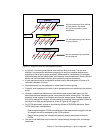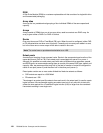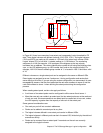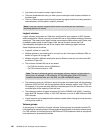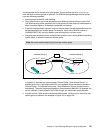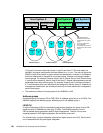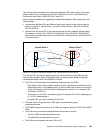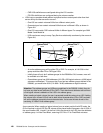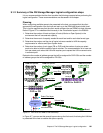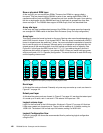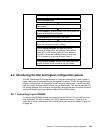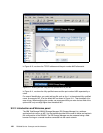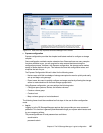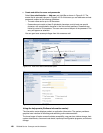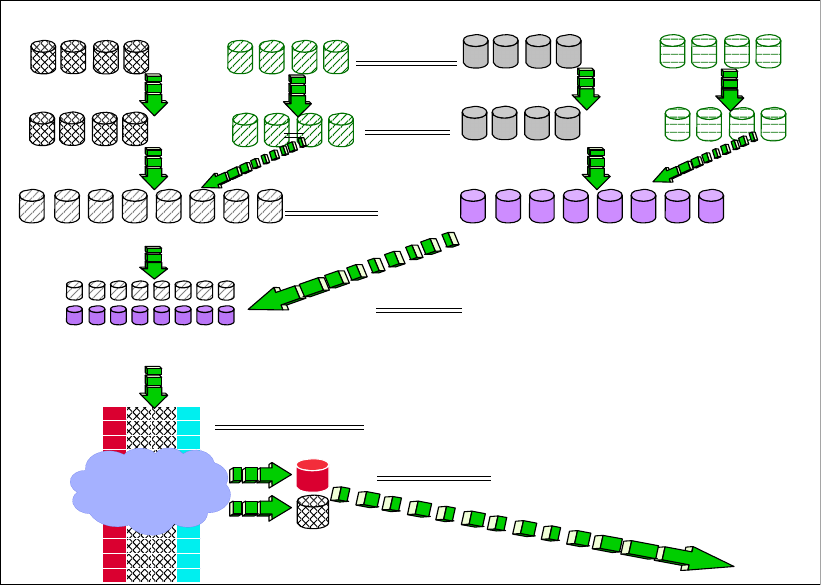
Chapter 9. The DS Storage Manager: Logical configuration 161
9.1.2 Summary of the DS Storage Manager logical configuration steps
It is our recommendation that the client consider the following concepts before performing the
logical configuration. These recommendations are discussed in this chapter.
Planning
When configuring available space to be presented to the host, we suggest that the client
approach the configuration from the host and work up to the DDM (raw physical disk) level.
This is just the opposite way that the client would configure the raw DDMs into host volumes.
Refer to Figure 9-7 to understand the hierarchy in the virtualization layers in the DS6000.
1. Determine the number of hosts and type of hosts (zSeries or Open System) in the
environment that will use external capacity.
2. Determine the amount of capacity needed for each host and for each data format type.
3. Determine the number and the size of logical volumes needed to fulfill the capacity
requirements for zSeries and Open System hosts.
4. Determine the number of rank types (FB or CKD) and the number of ranks per extent
pools to be able to build the specific logical volumes. The recommendation is to have one
rank per extent pool unless the LUN size requires you to spread the LUN on several ranks
in an extent pool.
Determine the number of address groups that will be assigned for CKD LSSs and the number
of address groups that will be assigned for FB LSSs.
Figure 9-7 View of the raw DDM to LUN relationship
In Figure 9-7, you can see that several layers make up the final result, that being the LUN that
is presented to the host as usable disk space capacity.
6
Array Site X
DDM four-pack Y
Rank1
Volumes/LUNs
Host
Array 1
(Extent Pool A)
Each extent = 1
GB
CKD or FB
Array 2
RAID5 or RAID10
RAID5 or RAID10
Rank2
DDM four-pack X
Array Site w
DDM four-pack z
DDM four-pack w
Ar
array layer
Extent Pool layer
Volume layer
array Site
rank layer
Raw DDMs



